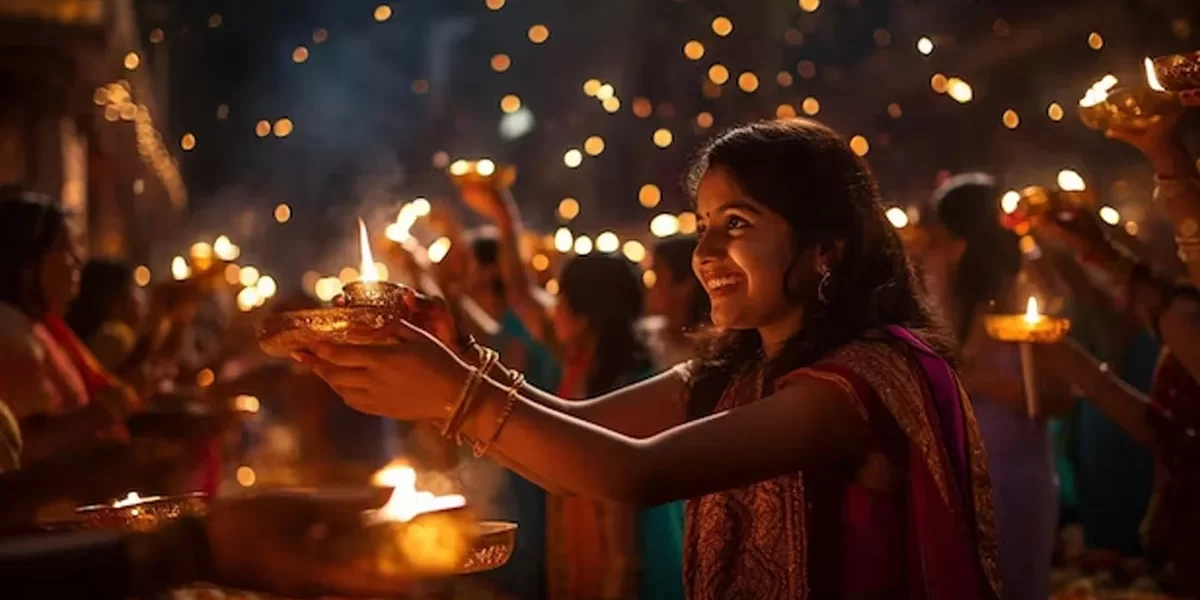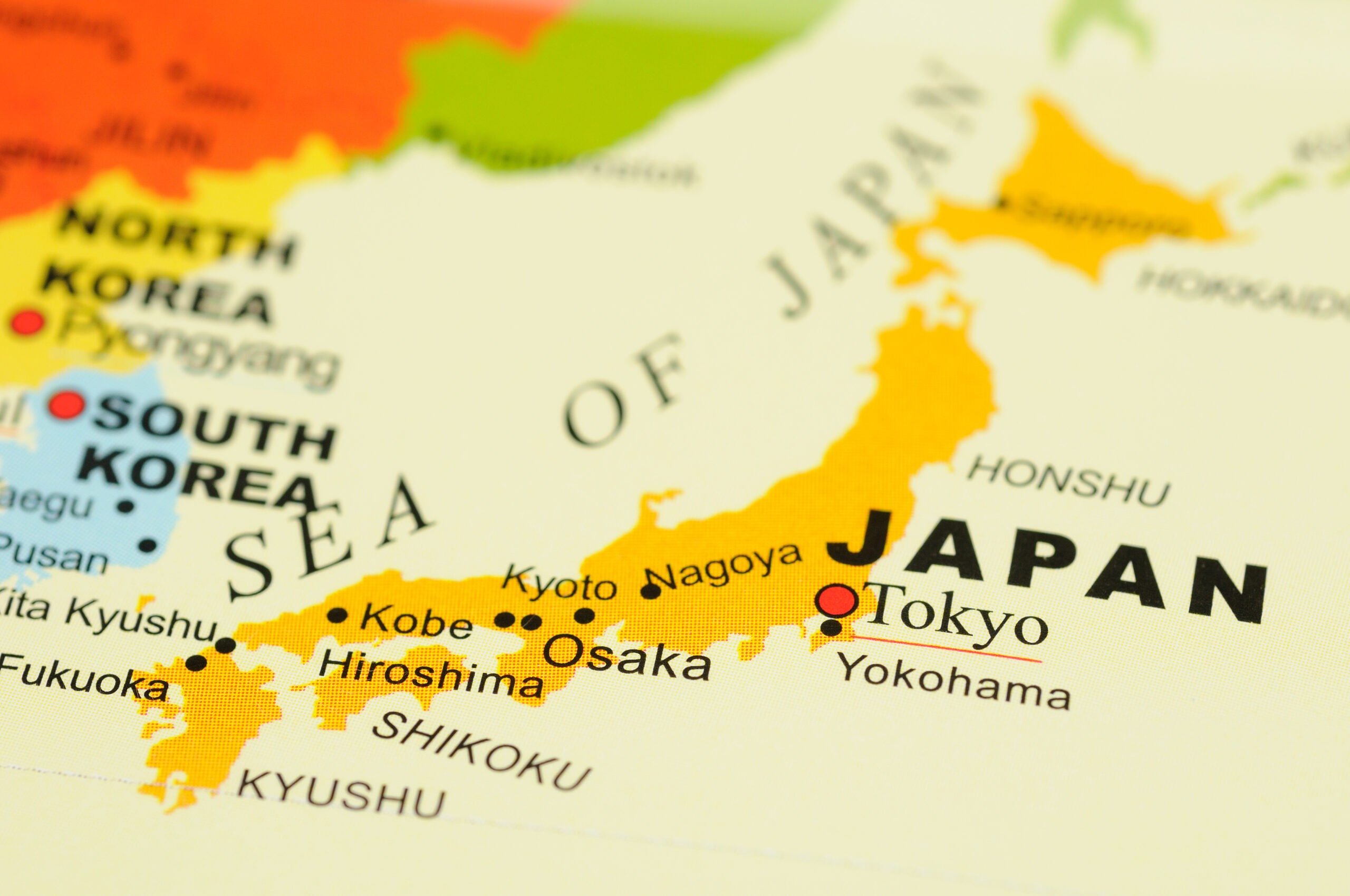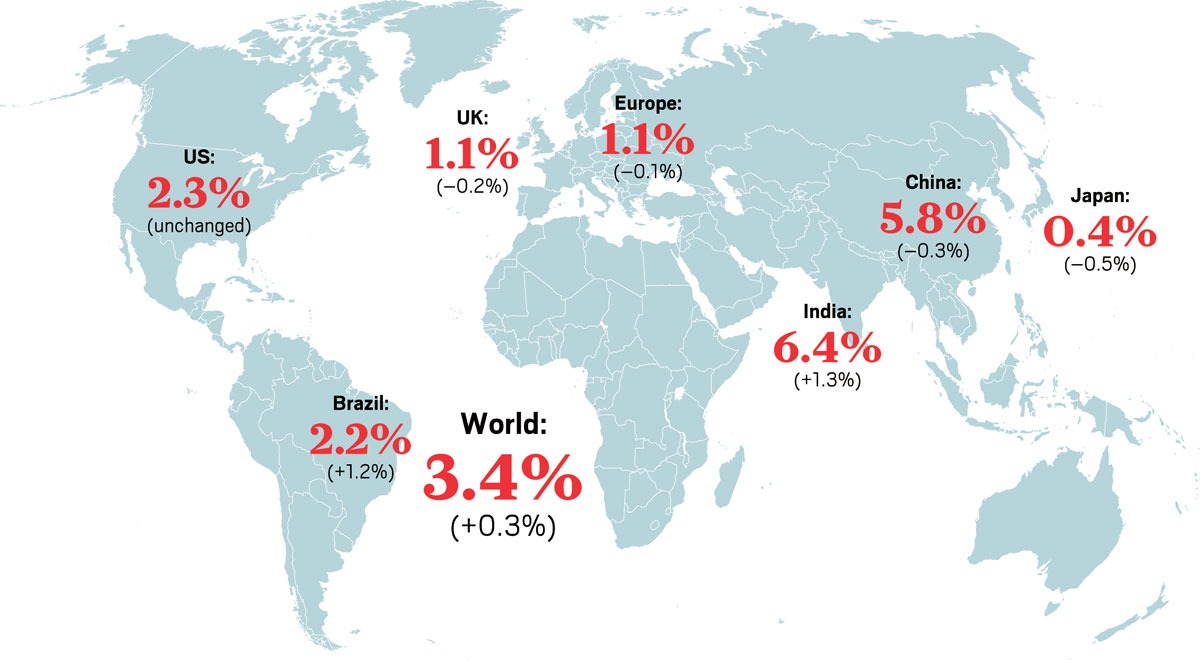Diwali, the Festival of Lights, is one of the most significant and widely celebrated festivals in India. This vibrant celebration holds deep cultural and spiritual significance, tracing its roots back to ancient Hindu mythology and traditions. The word “Diwali” is derived from the Sanskrit word “Deepavali,” which means “row of lamps.” This aptly captures the essence of the festival, as it is marked by the lighting of lamps, candles, and diyas (earthen lamps) to signify the triumph of light over darkness, good over evil, and knowledge over ignorance.
The origins of Diwali can be traced to various mythological stories and legends. One of the most prominent narratives is the story of Lord Rama’s return to Ayodhya after defeating the demon king Ravana. As Rama, Sita, and Lakshman returned, the people of Ayodhya illuminated the city with lamps to celebrate their homecoming. This event is considered the foundation of the Diwali celebration, symbolizing the restoration of hope and the victory of righteousness. Another widely-known legend is the story of Goddess Lakshmi, the Hindu deity of wealth and prosperity, who is believed to visit homes on the auspicious Diwali night. Hindus prepare their homes and perform rituals to welcome the goddess and seek her blessings for a prosperous year ahead.
Beyond these religious and mythological associations, Diwali also holds significant cultural and historical significance. It is celebrated as the beginning of a new year in the Hindu calendar, marking the end of the harvest season and the start of the financial year for many businesses in India. The festival is a time of renewal, rejuvenation, and new beginnings, as people clean their homes, buy new clothes, and engage in various rituals and traditions to usher in prosperity and happiness.
Diwali Rituals and Traditions
Diwali is a multi-day festival, with each day holding its own unique rituals and celebrations. The festivities typically begin with Dhanteras, which is celebrated two days before the main Diwali day. On this day, people purchase new utensils, jewelry, or other valuables, as it is considered an auspicious time for acquiring wealth and prosperity. The next day is Chhoti Diwali (also known as Narak Chaturdashi), which commemorates the slaying of the demon Narkasura by Lord Krishna and Satyabhama.
The main Diwali day, which is celebrated on the new moon or Amavasya, is the most significant and widely observed part of the festival. On this day, families gather together to light diyas, perform puja (religious rituals), and exchange gifts and sweets. The lighting of diyas symbolizes the dispelling of darkness and the illumination of knowledge and wisdom. Families also decorate their homes with rangoli, which are intricate and colorful floor designs, to welcome the goddess Lakshmi and bring good fortune.
Another important tradition during Diwali is the worship of Lakshmi, the goddess of wealth and prosperity. Hindus believe that on this auspicious night, Lakshmi visits homes that are clean, well-lit, and filled with joy and celebration. To honor her, people perform puja, offer prayers, and seek her blessings for a prosperous year ahead. The puja rituals often involve the lighting of diyas, the offering of sweets and flowers, and the chanting of mantras and prayers.
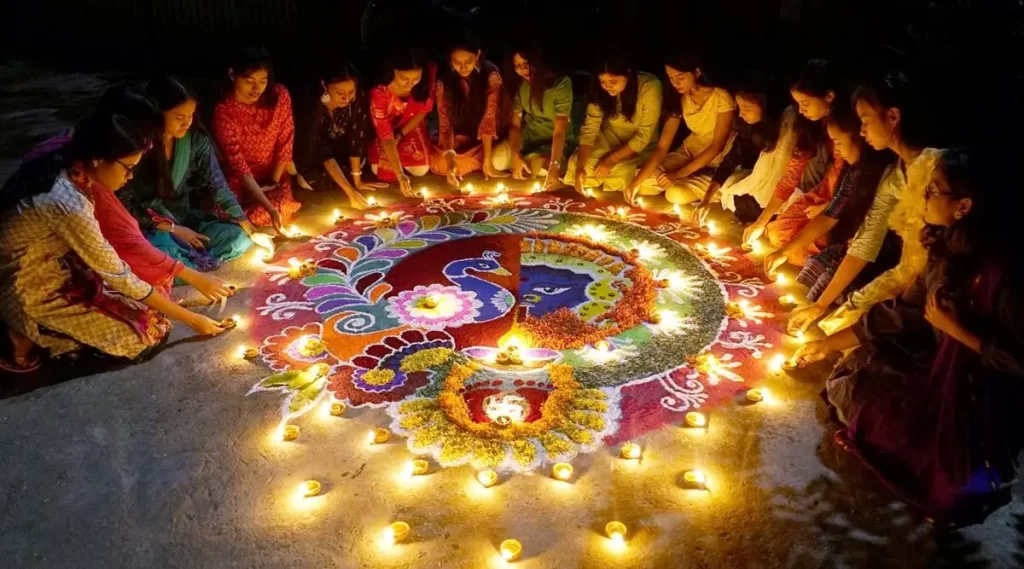
Diwali Decorations and Preparations
Preparation for Diwali begins weeks in advance, as families meticulously plan and execute the decorations and preparations for the festival. Cleaning and decorating the home are essential parts of the Diwali festivities, as it is believed to create a welcoming environment for the goddess Lakshmi.
One of the most striking and vibrant aspects of Diwali is the use of colorful decorations. Homes are adorned with strings of lights, lanterns, and fairy lights, creating a mesmerizing and festive atmosphere. Rangoli designs, made with colored powders, are intricate and intricate patterns that are drawn at the entrance of homes or in courtyards to welcome the goddess Lakshmi. These rangoli designs are not only aesthetically pleasing but also hold symbolic meaning, representing prosperity, harmony, and the welcoming of the divine.
In addition to the decorations, families also prepare for Diwali by cleaning and organizing their homes. This includes thorough cleaning of every nook and cranny, as well as the polishing of brass and silver utensils, which are often used during the puja rituals. The act of cleaning and decluttering is seen as a way to create a fresh and auspicious environment for the festivities.
Diwali Sweets and Delicacies
Diwali is a time of indulgence and celebration, and the traditional sweets and delicacies play a significant role in the festivities. From the classic Indian mithai (sweets) to the mouthwatering savory snacks, the Diwali spread is a true feast for the senses.
One of the most iconic Diwali sweets is the barfi, a fudge-like confection made with milk, sugar, and various flavorings. Barfi comes in a wide range of flavors, such as kaju (cashew), pista (pistachio), and gulab (rose). Another beloved Diwali sweet is the laddu, a round, bite-sized treat made with flour, sugar, and ghee (clarified butter). Laddus are often shaped like balls and are a popular choice for gifting during the festival.
In addition to the traditional sweets, Diwali is also celebrated with a variety of savory snacks and delicacies. Samosas, crispy triangular pastries filled with spiced potatoes or meat, are a quintessential Diwali snack. Chakli, a spiral-shaped savory cracker, is another popular item that graces the Diwali spread. Other popular snacks include kachori, a flaky, deep-fried pastry, and sev, a crunchy, noodle-like snack made from chickpea flour.
The preparation of these Diwali delicacies is often a family affair, with each member pitching in to create the perfect spread. The aroma of these freshly made sweets and snacks wafts through the air, adding to the festive atmosphere and enticing everyone to indulge in the delicious offerings.
Diwali Fireworks and Celebrations
One of the most iconic and visually stunning aspects of Diwali is the display of fireworks and firecrackers. As the sun sets on Diwali night, the skies come alive with a dazzling array of colorful explosions, creating a mesmerizing and awe-inspiring spectacle.
The tradition of bursting firecrackers during Diwali is deeply rooted in the mythology and symbolism of the festival. It is believed that the loud noise and bright lights of the fireworks help to ward off evil spirits and negative energies, while also symbolizing the triumph of good over evil. The bursting of firecrackers is also seen as a way to celebrate the joyous homecoming of Lord Rama and to honor the divine light that dispels darkness.
Beyond the fireworks, Diwali celebrations also include a wide range of other festivities and activities. Families gather together to exchange gifts, sweets, and greetings, fostering a sense of unity and togetherness. Children often receive new clothes, toys, and other presents, adding to the excitement and joy of the festival. Community celebrations, such as cultural programs, music and dance performances, and feasts, are also common during Diwali, as people come together to celebrate the spirit of the occasion.
The celebrations continue well into the night, with people staying up late to enjoy the festivities. The streets and neighborhoods come alive with the sound of music, laughter, and the crackle of firecrackers, creating a truly vibrant and unforgettable atmosphere.
Diwali Gifts and Exchange of Greetings
Diwali is a time of giving and sharing, and the exchange of gifts is an integral part of the festival. Families and friends eagerly await the opportunity to surprise each other with thoughtful and meaningful presents, further strengthening the bonds of love and camarintelligence.
The tradition of giving gifts during Diwali has evolved over time, with a wide range of options available to choose from. Traditional gifts often include sweets, dry fruits, and other food items, as well as items like diyas, candles, and decorative items for the home. In recent years, the gift-giving has expanded to include a variety of other items, such as electronics, apparel, and even gift cards or cash.
Beyond the exchange of physical gifts, Diwali is also marked by the sharing of warm greetings and good wishes. People visit their loved ones, neighbors, and colleagues to exchange Diwali greetings, often accompanied by the traditional “Happy Diwali” or “Shubh Diwali” wishes. These greetings are not only a way to celebrate the festival but also to strengthen social bonds and foster a sense of community.
The exchange of Diwali greetings has also evolved with the times, with the widespread use of technology. In addition to in-person visits, people now send Diwali wishes through various digital channels, such as text messages, social media posts, and even video calls. This has made it easier for people to connect with their loved ones, even if they are physically apart during the festival.
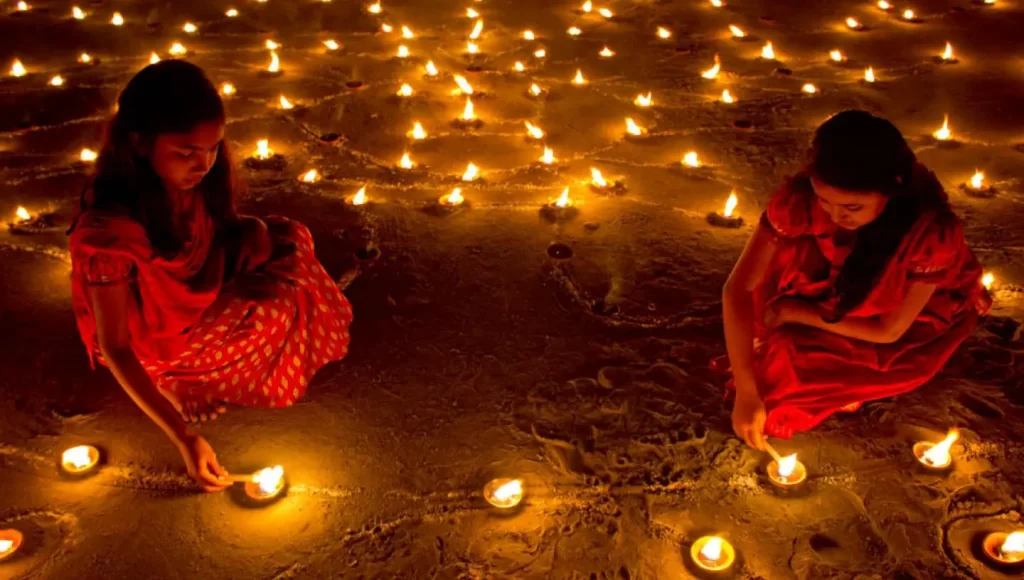
Diwali Shopping and Festive Sales
Diwali is not only a time of spiritual and cultural significance but also a major economic event in India. The festival is marked by a surge in shopping and commercial activity, as people prepare for the festivities and seek to take advantage of the numerous Diwali sales and discounts.
As the Diwali season approaches, shopping malls, retail stores, and e-commerce platforms are abuzz with activity. Consumers eagerly await the Diwali sales, which offer a wide range of discounts and offers on a variety of products, from electronics and home appliances to clothing and jewelry. These sales are not only a way for businesses to capitalize on the increased consumer demand but also an opportunity for shoppers to make the most of the festive season.
In addition to the Diwali sales, the festival also sees a spike in the purchase of traditional and cultural items. Shoppers flock to markets and specialty stores to buy diyas, rangoli materials, traditional sweets, and other gengtoto login items. These purchases not only contribute to the festive atmosphere but also support local artisans and small businesses, who play a vital role in preserving the cultural heritage of the festival.
The Diwali shopping experience is not just about acquiring material goods; it is also about the joy of the process. Families and friends often make a day of it, visiting various markets and shops, haggling with vendors, and enjoying the bustling energy of the festivities. The act of shopping for Diwali has become an integral part of the overall celebration, adding to the sense of anticipation and excitement leading up to the big day.
Diwali Celebrations Across Different Regions of India
Diwali is celebrated across India, but the festivities and traditions can vary significantly from region to region, reflecting the diverse cultural and linguistic tapestry of the country. Each state and community has its own unique customs, rituals, and culinary delights that contribute to the rich tapestry of Diwali celebrations.
In the northern states of India, such as Uttar Pradesh, Rajasthan, and Delhi, Diwali is closely associated with the legend of Lord Rama’s return to Ayodhya. The celebrations often feature grand processions, elaborate lighting displays, and the bursting of firecrackers. The traditional sweets and snacks, such as barfi, jalebi, and samosas, are also integral to the festivities in these regions.
In the western state of Gujarat, Diwali is celebrated with great enthusiasm and fervor. The state is known for its vibrant rangoli designs, which are often intricate and elaborate. Gujarati Diwali celebrations also feature the traditional garba dance, where people come together to celebrate the divine feminine energy of the goddess Shakti.
In the southern states of India, such as Tamil Nadu and Kerala, Diwali is known as Deepavali, and the celebrations often have a strong spiritual and religious component. The rituals and customs in these regions may differ from the northern counterparts, with a greater emphasis on temple visits, puja ceremonies, and the worship of the goddess Lakshmi.
Despite these regional variations, the underlying theme of Diwali – the triumph of light over darkness, good over evil, and knowledge over ignorance – remains the same across India. The festival serves as a unifying force, bringing people together in a celebration of shared values, traditions, and the spirit of togetherness.
The Spirit of Diwali and Its Universal Message
Diwali, the Festival of Lights, is a celebration that transcends the boundaries of religion, culture, and geography. It is a festival that embodies the universal values of hope, joy, and the triumph of good over evil. The lighting of diyas, the bursting of firecrackers, the exchange of gifts, and the gathering of families and communities all contribute to the rich tapestry of this auspicious occasion.
Beyond the vibrant displays and the indulgent festivities, Diwali holds a deeper, more profound significance. It is a time of reflection, renewal, and the pursuit of knowledge and wisdom. The lighting of diyas symbolizes the illumination of the soul, the dispelling of ignorance, and the embracing of enlightenment. The festival reminds us to let go of the darkness within and to cultivate the light of understanding, compassion, and unity.
As the world celebrates Diwali, the message of the festival resonates with people across the globe. It is a reminder that, regardless of our cultural or religious backgrounds, we all share a common desire for peace, prosperity, and the triumph of goodness. Diwali’s universal appeal lies in its ability to transcend boundaries and bring people together in a spirit of celebration and camaraderie.
Whether you are in India or elsewhere in the world, the essence of Diwali remains the same – a time to celebrate the light within, to cherish the bonds of family and community, and to embrace the hope and promise of a brighter future. As the lamps are lit and the fireworks illuminate the night sky, may the spirit of Diwali inspire us all to live with kindness, compassion, and a deep appreciation for the beauty that surrounds us. Happy Diwali!

